Can Chemical Changes Be Reversed
Welcome to GDAE'due south website!
This website presents GDAE's current enquiry and educational efforts in 3 areas:
Land, Energy, and Climate
Green Economics
Environmental and Natural Resource Economic science
Educational materials, including the "In Context" texts for Macroeconomics, Microeconomics, Principles of Economics and one-semester Essentials of Economics, as well as gratuitous education modules can now be accessed at their new location at theEconomic science in Context Initiative at Boston Academy's Global Evolution Policy Center.
Publications reflecting GDAE'south before research in areas such as globalization, trade, and feminist economics, including Policy Briefs and Discussion papers, tin can be found in our Resources Directory.
All GDAEbooksandworking papers are as well bachelor.
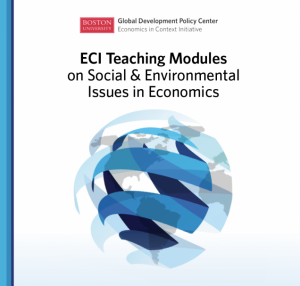

New from GDAE

COP26 Study: THE Part OF FORESTS AND SOILS
A new GDAE policy brief by Anne-Marie Codur and Jonathan Harris addresses global climate issues in the wake of the Glasgow COP26 conference. The global context of COP26 was set past the sixth assessment of the Intergovernmental Console on Climate Change (IPCC), warning of severe consequences if the planet exceeds 1.five°C of warming. The policy brief addresses both progress made at Glasgow towards this goal, and the significant ways in which the event of the conference roughshod short of what is needed. Codur and Harris outline the crucial importance of a largely missing element of climate policy: the role of natural climate solutions including forests, wetlands, and soils.
New Edition of Ecology and Natural Resource Economics
November fifteen, 2021
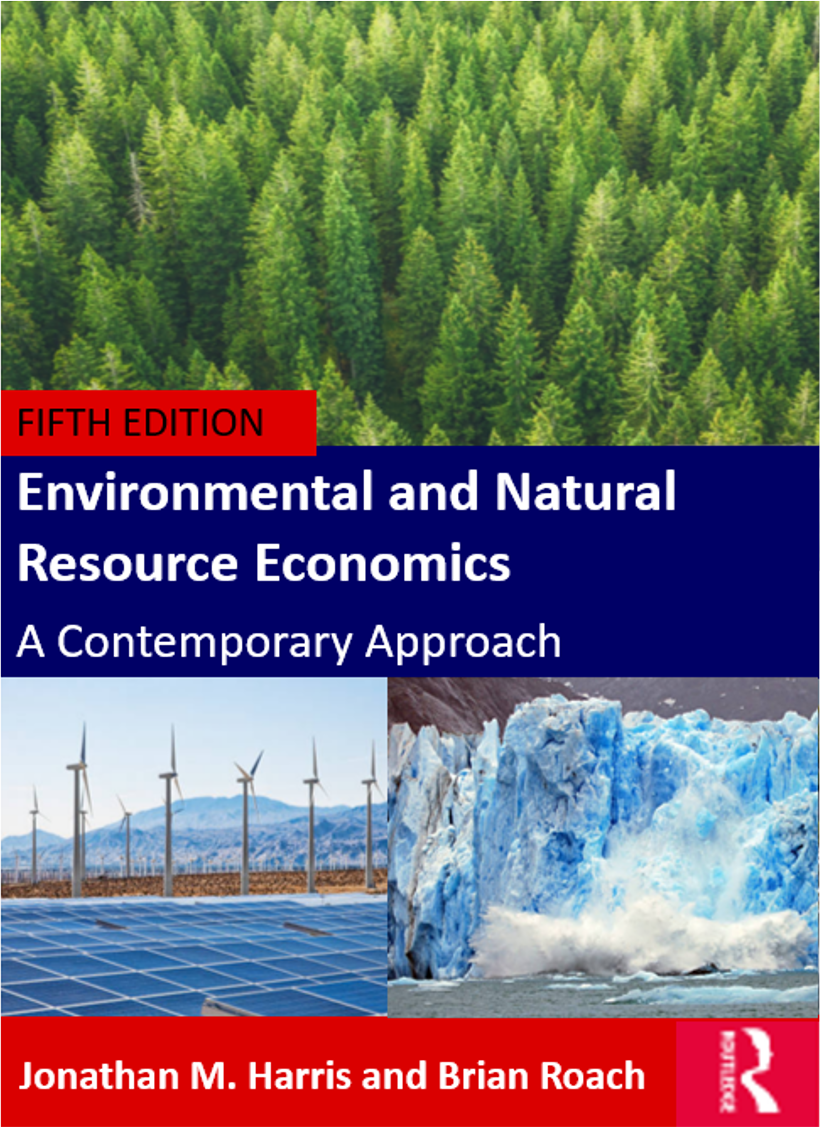
Thefifth edition ofEnvironmental and Natural Resources Economics: A Contemporary Approach has been published! This text balances coverage of standard environmental economics topics with broader ecological economics assay and a global perspective on electric current issues such equally global climate change, the transition to renewable energy, "green" national income bookkeeping, population growth, agronomical sustainability, and natural resources systems. The new edition deals with the fast-changing economics of energy and climate, the rapid expansion of renewable energy, and issues of country management, as well equally updating all data and presenting contempo inquiry on environmental issues. Two sample chapters are available.
 GDAE Senior Researcher Jonathan Harris was interviewed by Good for you Living Good for you Planet Radio on Saturday, October 16th for an episode on the Economics of Climatic change, together with Dr. Richard Tol of the University of Sussex. The podcast (Episode 98) is available at https://world wide web.healthylivinghealthyplanetradio.com/mind-online Topics discussed included the health and economical impacts of climate change , economic policies for responding to climate change, expanding renewable free energy, and developing climate resilience.
GDAE Senior Researcher Jonathan Harris was interviewed by Good for you Living Good for you Planet Radio on Saturday, October 16th for an episode on the Economics of Climatic change, together with Dr. Richard Tol of the University of Sussex. The podcast (Episode 98) is available at https://world wide web.healthylivinghealthyplanetradio.com/mind-online Topics discussed included the health and economical impacts of climate change , economic policies for responding to climate change, expanding renewable free energy, and developing climate resilience.
GDAE Researchers Present at Ecological Economics/Degrowth Conference
July 13, 2021
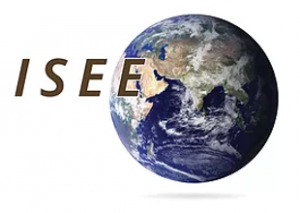


GDAE Researchers presented at the Online Joint Conference of the International Order for Ecological Economics, the European Society for Ecological Economics, and the international degrowth enquiry networks, hosted by University of Manchester, United kingdom of great britain and northern ireland, 5th-eighth July 2021.
GDAE presentations included:
Anne-Marie Codur and Sam Polzin, Farmers as Ecosystem Regenerators: A Case Study of the Northeast Healthy Soil Network.
Jonathan Harris, Getting to Net Zero: Ecological Economics Can Aid.
Brian Roach, Jonathan Harris, and Anne-Marie Codur, Teaching Ecological Economic science: Energy, Climate, Growth, and Degrowth and Changing Economics of Renewable Energy.
The presentations emphasized lessons from the preparation of the 5th edition of Environmental and Natural Resource Economics: A Gimmicky Approach : the increasing testify of the severity and urgency of climate change, increased ambition for carbon reduction goals, and the essential function of renewable energy, energy efficiency, and carbon storage in soils and forests in achieving these goals.
Forum on Green and Blue New Deals
April 23, 2021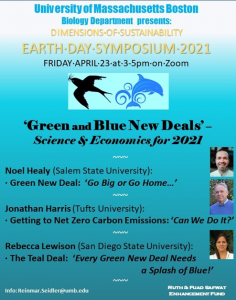
GDAE Senior Researcher Jonathan Harris participated in a symposium sponsored by the Academy of Massachusetts at Boston on Greenish and Bluish New Deals: Scientific discipline and Economic science for 2021. Noel Healy (Salem State Academy) and Rebecca Lewison (San Diego State University) joined Dr. Harris with presentations on policy responses to the climate emergency. Dr. Healy's talk was entitled "Dark-green New Deal: Get Big or Get Home", stressing the importance of a large-calibration program with a focus on climate and economic justice. Dr. Harris's presentation on "Getting to Net Nada Carbon Emissions: Tin We Practice It?" surveyed the potential of renewable energy, energy efficiency, and carbon storage in forests, grasslands, wetlands, and agricultural soils. Dr. Lewison emphasized the many ways in which salubrious ocean ecosystems are key to climate stabilization. View the webinar. Meet Dr. Harris's Powerpoint presentation.
New Research on Ecological Farming, Restorative Forestry, and Gender Economics
February 1, 2021
GDAE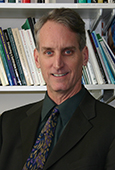
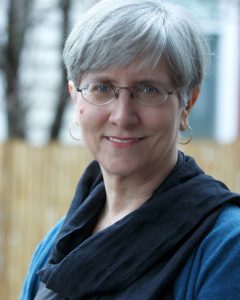 Researcher
Researcher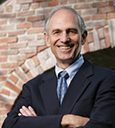 due south have new published work on important borderland areas in economics and ecology. Senior Research Beau Timothy A. Wise has a new commodity on the promise of ecological agriculture in Africa, as well as the social and ecological damage from intensive agribusiness. Come across original commodity and other work past Wise on the hope of ecological agriculture in Africa, too as the social and ecological harm from intensive agribusiness. (See other contempo work by Wise.)
due south have new published work on important borderland areas in economics and ecology. Senior Research Beau Timothy A. Wise has a new commodity on the promise of ecological agriculture in Africa, as well as the social and ecological damage from intensive agribusiness. Come across original commodity and other work past Wise on the hope of ecological agriculture in Africa, too as the social and ecological harm from intensive agribusiness. (See other contempo work by Wise.)
GDAE Co-Managing director William Moomaw is featured in aNew Yorker article by Pecker McKibben who cites Moomaw's research on "proforestation"— growing existing forests intact to their ecological potential—every bit an culling to unsustainable policies of burning biomass. See the original commodity by Moomaw et al. and a summary in EnviroBites.
Senior Research Young man Julie A. Nelson discusses bug of economics, gender, and community knowledge in two contempo manufactures on "Economic science, Considered" and"Economic science and Community Knowledge-Making". Dr. Nelson is one of the founders of feminist economics and presents feminist perspectives on the economic science of care, ecological economics, behavioral economics, and the theory of the firm.
Massachusetts Attorney General's Role Forum on Forest Carbon Storage
September fifteen, 2020
GDAE Co-Director Dr. William  Moomaw joined 2 distinguished colleagues, Richard A. Birdsey of the Woodwell Climate Research Eye and John Sterman of the MIT Sloan School of Management at a forum sponsored past the Massachusetts Chaser General'due south Office to discuss The Disquisitional Role of Forests in Protecting Climate and Public Health. In addition to examining the crucial role of forests in carbon storage, the panelists discuss the potential of energy efficiency and renewables, concluding that an aggressive policy combining efficiency and renewables with wood protection and expansion can exist effective in reducing the impacts of climate change. View the webinar.
Moomaw joined 2 distinguished colleagues, Richard A. Birdsey of the Woodwell Climate Research Eye and John Sterman of the MIT Sloan School of Management at a forum sponsored past the Massachusetts Chaser General'due south Office to discuss The Disquisitional Role of Forests in Protecting Climate and Public Health. In addition to examining the crucial role of forests in carbon storage, the panelists discuss the potential of energy efficiency and renewables, concluding that an aggressive policy combining efficiency and renewables with wood protection and expansion can exist effective in reducing the impacts of climate change. View the webinar.
Climate Change, Social Equity, and the Light-green New Deal
Baronial 14, 2020
 GDAE Senior Researcher Jonathan Harris is quoted extensively in a new article on social equity and the Light-green New Deal. He argues that the political presentation of the Greenish New Deal has improved, stressing its practical advantages particularly for depression-income earners. A Dark-green New Deal has the potential to create millions of jobs, while employing policy measures that are low cost and tin take immediate touch. The COVID crisis increases the urgency of a broad Federal response both to unemployment and to the health crisis. The article builds on an earlier presentation about Transitioning to a Low-Carbon Economy. Encounter also Harris's policy brief on Ecological Economics of the Green New Bargain and other research past GDAE on Dark-green Economics.
GDAE Senior Researcher Jonathan Harris is quoted extensively in a new article on social equity and the Light-green New Deal. He argues that the political presentation of the Greenish New Deal has improved, stressing its practical advantages particularly for depression-income earners. A Dark-green New Deal has the potential to create millions of jobs, while employing policy measures that are low cost and tin take immediate touch. The COVID crisis increases the urgency of a broad Federal response both to unemployment and to the health crisis. The article builds on an earlier presentation about Transitioning to a Low-Carbon Economy. Encounter also Harris's policy brief on Ecological Economics of the Green New Bargain and other research past GDAE on Dark-green Economics.
Two New Policy Briefs on Soils and Climate

July 13, 2020
Policies to promote good for you soils are central both for climate policy and agricultural sustainability. Following two conferences on the topic, GDAE researchers present ii policy briefs, i by Sam Polzin on Soil Carbon, Water Management, and Natural Infrastructure and 1 by Benjamin Johnson on Land Value and Soil Quality. They advocate:
- Regionally coordinated state-level agricultural policy incentives to enhance both soil wellness and water management in the Northeastern United states of america past harnessing the potential for agriculture to build natural infrastructure.
- Reforming electric current systems of land valuation and taxation to reverberate soil quality and long-term productive potential, creating landowner incentives for proper stewardship.
Come across Healthy Soils conference reports and other related climate policy briefs.
Moomaw Appeals to the European union Parliament for Climate-Focused Wood Direction
May 22, 2020
GDAE Co-managing director William  Moomaw has drafted a letter to the European Parliament emphasizing forest direction equally an effective tool to reduce atmospheric carbon. Forests remove more carbon from the atmosphere than any other planetary system, merely this storage potential is threatened by man activities. Long-term carbon storage in forests is critically important in order to achieve both Eu and global climate targets.
Moomaw has drafted a letter to the European Parliament emphasizing forest direction equally an effective tool to reduce atmospheric carbon. Forests remove more carbon from the atmosphere than any other planetary system, merely this storage potential is threatened by man activities. Long-term carbon storage in forests is critically important in order to achieve both Eu and global climate targets.
The alphabetic character has been signed by 370 scientists from 34 countries who take a range of expertise spanning multiple dimensions of climate, forests, energy, carbon cycle accounting and biodiversity. Signers include some of the senior scientists who warned nearly the consequences of climate change during the 1970s and 80s, leading scientists of today, and younger scientists who are studying to be able to offer their talents to nature's climate solutions.
GDAE Co-Managing director Sponsors Letter Urging Congress to Protect Forests
May xiii, 2020
GDAE Co-Director Dr. William  Moomaw has sponsored a alphabetic character urging Congress to protect forests in the U.s. and shift away from wood consumption in an endeavour to reduce carbon emissions. The letter has been signed by more 200 climate and forest scientists.
Moomaw has sponsored a alphabetic character urging Congress to protect forests in the U.s. and shift away from wood consumption in an endeavour to reduce carbon emissions. The letter has been signed by more 200 climate and forest scientists.
The letter is further discussed here.
Transitioning to a Low-Carbon Economy
May 12, 2020
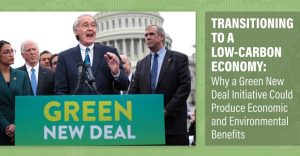 GDAE research is extensively cited in a new commodity on the Green New Bargain and the transition to a low-carbon economic system. The article argues that a Green New Deal tin can produce both environmental and economic benefits and quotes extensively from GDAE researcher Jonathan Harris.Meet likewise Harris'due south related Climate Policy Cursory.
GDAE research is extensively cited in a new commodity on the Green New Bargain and the transition to a low-carbon economic system. The article argues that a Green New Deal tin can produce both environmental and economic benefits and quotes extensively from GDAE researcher Jonathan Harris.Meet likewise Harris'due south related Climate Policy Cursory.
 Responding to Climate Modify in Japan
Responding to Climate Modify in Japan
March 31, 2020
GDAE Visiting Scholar David Sussman writes that climate change is threatening important cultural aspects of Japanese life, yet most people in the country have non taken actions to limit their carbon emissions.
In this op-ed in the Nikkei Asian Review, Dr. Sussman calls for individual and systemic changes that will reduce wasteful consumption and fossil fuel dependence.
 The Northeast Salubrious Soil Network Hosts Symposium
The Northeast Salubrious Soil Network Hosts Symposium
February 21, 2020
This day-long symposium brought together policymakers, farmers, academics, and students with the goal of advancing healthy soils policies and practices throughout the northeast.
For more about the event and upshot materials, visit the 2020 Conferences Page.
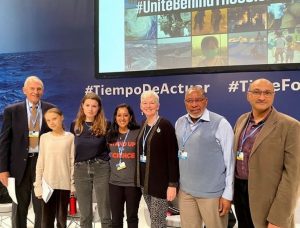 Moomaw speaks atUnite Behind the Science outcome hosted by Greta Thunberg and Luisa Neubauer duringCOP25
Moomaw speaks atUnite Behind the Science outcome hosted by Greta Thunberg and Luisa Neubauer duringCOP25
December 10, 2019
GDAE Co-director Dr. William Moomaw, co-author of the recent World Scientists' Warning of a Climate Emergency, joins fellow scientist Youba Sokona, youth activists Greta Thunberg and Luisa Neubauer, and scientists Ko Barrett, Sivan Kartha, and Rachel Cleetus, on the phase at the United Nations COP25 climate conference in Madrid. Read more about the outcome.
 World Scientists' Warning of a Climate Emergency
World Scientists' Warning of a Climate Emergency
November 5, 2019
William Moomaw co-authored a newspaper published in the periodical BioScience. In the paper, Moomaw and his co-authors declared a climate emergency that without deep and lasting shifts in homo activities will upshot in "untold human suffering". The authors present a suite of graphical vital signs of climate change over the final 40 years for human activities that can bear upon GHG emissions and change the climate, as well as actual climatic impacts. The newspaper is endorsed by 11,258 scientists from 153 countries.
The paper has been covered past TheWashington Mail service, The Guardian, TheBoston Globe, and USA Today.
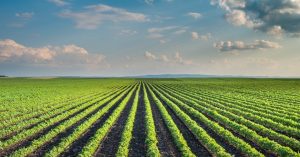 Rome Tiptop Takes Bold Footstep Toward Agroecology
Rome Tiptop Takes Bold Footstep Toward Agroecology
October 24, 2019
Common Dreamspublished an article by Timothy A. Wise on agroecology and its function equally i of the cutting-edge innovations nosotros need to help modest farmers adapt to climate change.
 Why Keeping Mature Forests Intact Is Cardinal to the Climate Fight
Why Keeping Mature Forests Intact Is Cardinal to the Climate Fight
October 15, 2019
GDAE Co-Director Dr. William Moomaw was interviewed by Yale Environment 360almost the importance of existing forests and why the push to cut them for fuel to generate electricity is misguided.
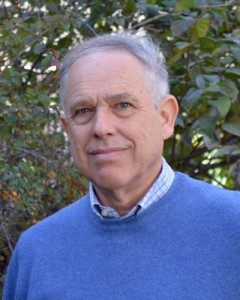
Jonathan Harris awarded Herman Daly Honour
August 2019
At the USSEE conference, Jonathan Harris was awarded the Herman Daly Award " designed to recognize individuals who accept connected ecological economic thinking to applied applications and implementation of solutions that are sustainable in scale, equitable in distribution and efficient in allocation." Read more about the award.
In the News
 GDAE was cited by CardRates in "Climate Alter and Social Equity: How the Greenish New Bargain Could Both Protect the Environment and Benefit Depression-Income Earners" on August 11, 2020.
GDAE was cited by CardRates in "Climate Alter and Social Equity: How the Greenish New Bargain Could Both Protect the Environment and Benefit Depression-Income Earners" on August 11, 2020.

GDAE Visiting Scholar David Sussman presents some of the limitations of banning plastic numberless in his July 17, 2020 article in The Conversation.

William Moomaw was cited past The Washington Post in "More than 11,000 scientists from effectually the world declare a 'climate emergency'" on Nov five, 2019.
 GDAE was cited past CardRates in "Transitioning to a Depression-Carbon Economy: Why a Green New Bargain Initiative Could Produce Economic and Environmental Benefits" on May 12, 2020.
GDAE was cited past CardRates in "Transitioning to a Depression-Carbon Economy: Why a Green New Bargain Initiative Could Produce Economic and Environmental Benefits" on May 12, 2020.
![]()
William Moomaw was cited by The New Yorker in "Don't Fire Copse to Fight Climatic change — Let Them Abound" on August 15, 2019
![]() William Moomawwas cited by National Geographic in "Trees release flammable marsh gas—here'southward what that means for climate" on March 25, 2019.
William Moomawwas cited by National Geographic in "Trees release flammable marsh gas—here'southward what that means for climate" on March 25, 2019.
 William Moomaw was cited by WGBH in "Are We Cutting Down The Wrong Copse In Massachusetts?" on June 25, 2019
William Moomaw was cited by WGBH in "Are We Cutting Down The Wrong Copse In Massachusetts?" on June 25, 2019
About
The Global Development And Environment Institute (GDAE) is a research institute at Tufts Academy defended to promoting a better understanding of how societies tin can pursue their economical and community goals in an environmentally and socially sustainable manner. GDAE pursues its mission through original research, policy work, publication projects, curriculum development, conferences and other activities.

Can Chemical Changes Be Reversed,
Source: https://sites.tufts.edu/gdae/
Posted by: greenewheyes.blogspot.com


0 Response to "Can Chemical Changes Be Reversed"
Post a Comment